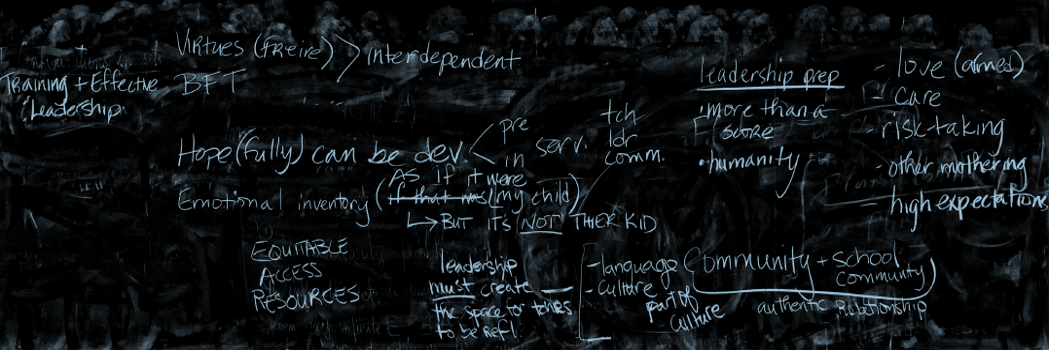This week’s readings were a great reminder that when it comes to radical care, it is not enough to simply have high expectations for students and help them develop their critical consciousnesses. It is also important to instill a sense of hope in them so they have the energy and motivation to meet those high expectations and to make some changes in the world with their new critical consciousness. Take the Cammarota piece for example. If the instructor would have just shown care to their students and taught them that the special education classroom inequality was unjust but left out the hopefulness that it could change, then nothing would have change. Yolo’s rightful indignation would have remained as it was. It wouldn’t have turned into any meaningful action. However, their instructor gave them the hope and drive to do something about it, which led to an entire movement, and in the end, their demands were met. However, it is not enough to just teach our students hope, we also have to be hopeful ourselves, according to Duncan-Andrade. We have to have the same drive and hope for change that we are trying to create in our students.
I am looking forward to being able to take some time to unpack the Duncan-Andrade video that we watched. I, personally, found it strange and unsettling. I did not appreciate that he made such definitive claims about educational psychology, since the reality of the matter is that we do not actually know that much about how people learn. I also found it super creepy and fucked up that he recorded a students’ traumatic story and played for a big group of people. Like, yeah, maybe she consented to having it shared, but like what on earth did that add to what he was trying to say to the Google people? It didn’t add anything. It was just trauma porn for it’s own sake. And I hated it.




Hi August! Thank you for sharing your post — I enjoyed reading it. Particularly your feelings around Duncan-Andrade’s talk. I similarly felt really uncomfortable when he shared the audio of his student’s very personal narrative to a group of strangers. It seemed, for me, to have the opposite effect of what he was trying to portray – trying to portray critical care in the classroom when actually causing harm. I also agree with you that the definitive statements he made made it seem like we have it all figured out we just aren’t acting on what we know when really, we still have a lot to learn about educational psychology and how people learn.
Thank you for pushing and clarifying my thinking. I always enjoy reading your posts!